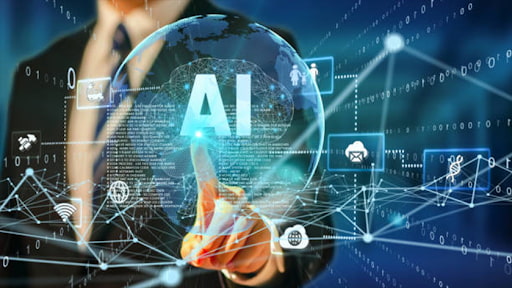Artificial intelligence (AI) is no longer a futuristic concept; it has become a tangible force revolutionizing multiple industries, including software development. From automatic code generation to workflow optimization, AI is changing how developers design, build, and deliver software. This impact is evident not only in large corporations but also in startups and small teams seeking to remain competitive in a dynamic tech market.
One of AI’s key contributions to software development is intelligent automation. AI-powered tools like GitHub Copilot have made it possible for developers to write code faster and with greater precision. These tools not only suggest lines of code but also identify errors, propose solutions, and learn from each user’s programming style. This saves time and reduces the likelihood of human errors.
AI also plays a crucial role in detecting and resolving software issues. Intelligent monitoring systems use machine learning to identify anomalous patterns in application behavior. For example, if an application experiences an unexpected increase in response time, AI tools can analyze data in real-time, diagnose the root cause, and, in some cases, apply fixes automatically. This improves user experience while minimizing service disruptions.
Another area where AI is making its mark is software testing. Traditionally, testing has been a time- and resource-intensive task. However, with the help of AI algorithms, it is now possible to prioritize tests based on their potential impact, generate realistic test data, and automatically perform code coverage analysis. This accelerates the development cycle and ensures that applications are more robust and reliable.
Software development is also undergoing a transformation in terms of personalization. AI enables highly adaptive user experiences by analyzing large volumes of data on preferences and behaviors. For instance, recommendation engines seen on platforms like Netflix or Amazon are the direct result of AI algorithms that tailor suggestions to each user. These capabilities are now being directly integrated into development tools, allowing teams to build applications that dynamically adjust to the needs of their end users.
In project planning and management, AI is facilitating data-driven decision-making. Tools like Monday.com or Jira are integrating AI capabilities to predict delays, allocate resources more efficiently, and optimize schedules. By analyzing historical and real-time data, these platforms provide insights that help teams avoid bottlenecks and deliver projects on time.

However, not everything is an advantage. Integrating AI into software development also presents significant challenges. One is the potential dependency of developers on automated tools, which could lead to a loss of fundamental skills. Additionally, there is the risk of introducing biases into algorithms, potentially resulting in unfair or discriminatory applications. Lastly, ensuring the security and privacy of data used by AI systems is a key concern that must be addressed to ensure ethical and responsible development.
Looking to the future, it is clear that artificial intelligence will continue to shape the software development industry. With advancements in areas like natural language processing, computer vision, and reinforcement learning, the possibilities are practically limitless. Developers will have access to even more sophisticated tools that will allow them not only to create software faster but also to innovate in ways previously unimaginable.
In conclusion, AI is not just an additional tool in developers’ arsenals; it is a paradigm shift redefining what is possible in software development. For teams looking to stay ahead of the curve, adopting and adapting to these technologies will be essential. And while the path toward full AI integration in development may be fraught with challenges, the benefits far outweigh the obstacles, promising a more efficient, innovative, and exciting future for all.





